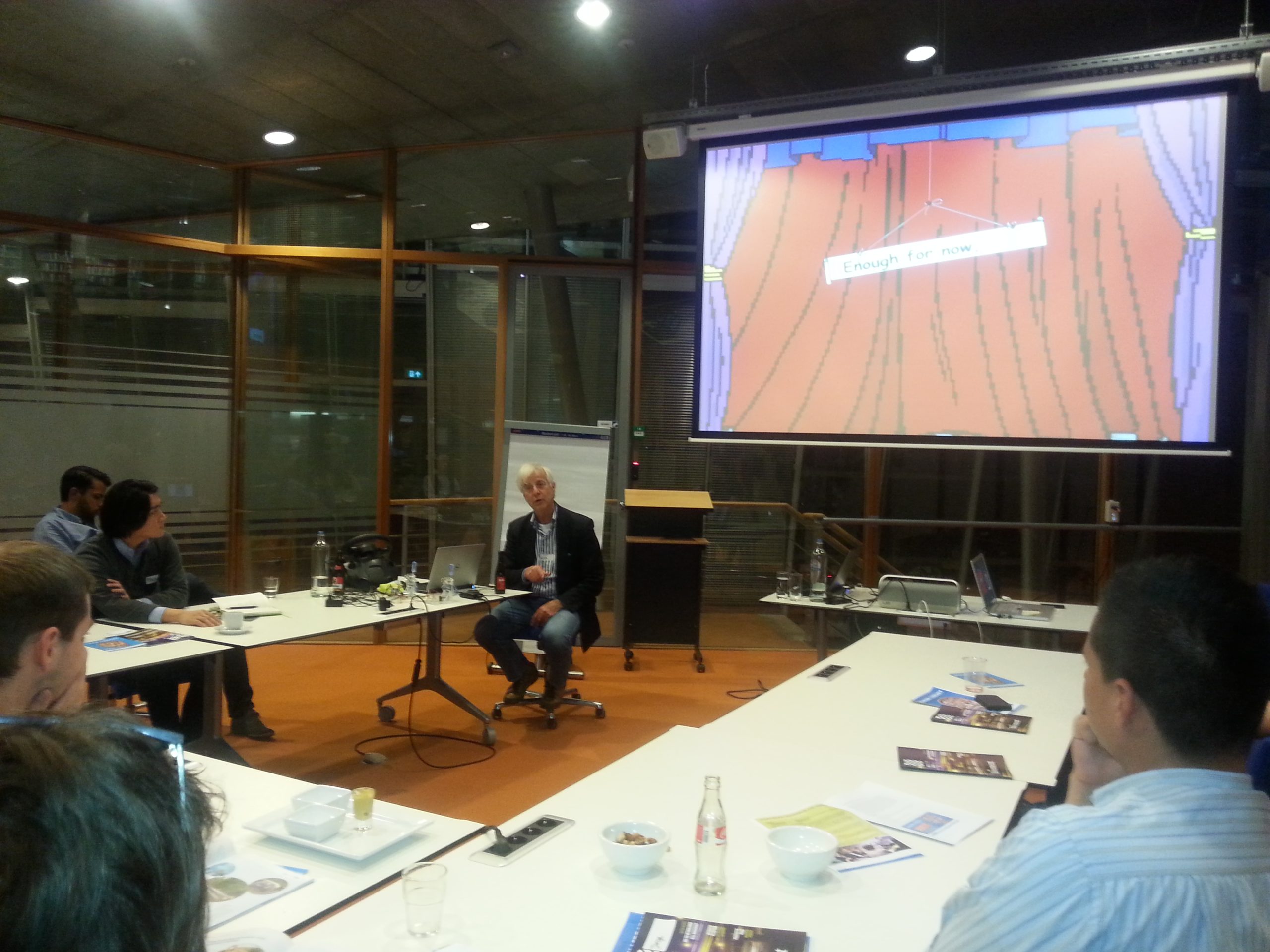A good book should make you think. The two ‘human books’ that presented their stories at the Human Library on October 28 certainly managed to get their readers pondering technology and music, passion and craziness, robotics and humanity and the nature of science itself.
Started in 2012, the Human Library is an initiative designed to give PhD candidates and TU employees a platform to interact with each other. At each session, two speakers are chosen as ‘books’ for the evening and invited to talk about their lives and work over drinks. Designed to be informal, the sessions are attended by Prof. Karel Luyben, the Rector Magnificus, who encourages attendees to open up about their concern during an after-session chat.
“This session was themed around movement, which ties in with the theme of latest issue of university magazine Delft Outlook,” said Marion Vredeling, the Programme Manager of the TU Delft Library and the organiser of the event.
Books for the night were Dr. Wim Thijs, one of TU’s self-proclaimed “crazy guys” and PhD candidate Jeroen Wildenbeest.
Wildenbeest’s research explores how one can combine human flexibility and dexterity with robotic speed and accuracy. Having recently won the Netherlands Science Battle, Wildenbeest is no stranger to explaining science in layman’s terms. To aid his story, he brought along props. One was a device that demonstrated teleoperation and the other a steering wheel reminiscent of 90s video games. The steering wheel controls a vehicle on the computer and is designed for part-automated and part-human control. The audience member who volunteered to test drive drove so badly that the audience called for his license to be revoked!
Even sans props, the second speaker of the night was riveting. 69-year-old Thijs peppered his narrative with animated slides (which included a beating heart) and a soundtrack of organ music played by him. He studied at TU until the early 80s, after which he left to travel the world as a professional windsurfer and set up a family business. In 1998 the former windsurfing world champion returned to the university. “I came back as a kind of court jester,” said Thijs jokingly, referring to his multifaceted role on campus. He not only set-up the D:Dream Hall (which houses projects such as the Delta Lloyd Solar Boat and the DUT Racing Team), but also supervises the OWee introduction programme and works with the Studium Generale. “I want to help students develop themselves and their day dreams,” he said.
After the two sessions, a round of informal open-topic discussions began. From the transient nature of technology to Luddites and their aversion to change, conversation jumped to capitalism and the role of competitiveness in science. “Team work is very important in science, but, on the other hand, competition is what drives researchers to work faster and better. Where does one strike the right balance? That is something we still don’t have the answer to,” added Prof Luyben.
If you’d like to weigh in on this discussion, or have other stories to share, join in for the next Human Library Session at the library on November 25, 2014.



Comments are closed.